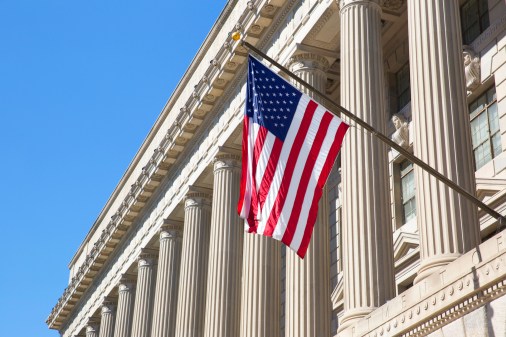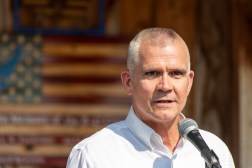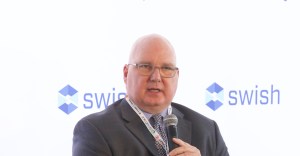Agencies take on Internet of Things projects amid obstacles
“Smart” sleep apnea masks. Blood sugar monitors that alert doctors when a patient’s glucose gets too high. FitBits that log stats into a patient’s electronic medical record.
These types of Internet of Things technologies could help Department of Veterans Affairs doctors better treat their patients, said Aaron Drew, VA’s senior enterprise solutions architect. But to take full advantage of IoT, the department needs to make sure its architecture isn’t shackled to a proprietary system, he told FedScoop.
“You can’t always rely on hiring a system integrator,” he said after a Tuesday panel on the potential of the Internet of Things sponsored by defense industry trade group AFCEA Bethesda. “We have to move beyond that. I think the relationship between systems has to be more fluid.”
In general, the government has been slow to take to the Internet of Things, which refers to the growing plethora of Internet-connected devices from watches to traffic lights — even as researchers expect that the field will continue to expand. Gartner estimates that worldwide spending on Internet of Things hardware will surpass $2.5 million every minute of next year.
Nonetheless, some agencies, like the VA, have been testing how IoT devices could help them better deliver services.
As an example, Drew cited a pilot the VA is conducting to better manage the care of patients who have sleep apnea — a disorder which causes them to momentarily stop breathing and wake-up periodically during the night. Patients use a sleep apnea oxygen mask, which, in the pilot program, electronically notifies a physician when their breathing stops during the night and, via text, prompts patients to set up a follow-up appointment, if the episode is severe enough to warrant it.
Drew said the technology connects those in need of care to treatment more quickly.
“You didn’t have to find me. I found you. I was in your house, in your bedroom, on your phone when you woke up,” he said. “I brought your medical way forward right to you without you thinking about it.”
Not only could this technology help make VA health care more efficient, it could lay the groundwork for precision medicine, an effort the White House is promoting to make treatments better tailored to individual patients, he said.
Brian Nordmann, senior arms control adviser at the State Department, highlighted his agency’s work to test using iPhones to detect environmental indicators, like air composition, that could hint at the presence of a nuclear weapon.
But, privacy remains a concern as agencies look to IoT, panelists said. Nordmann said agencies must reconcile their work in IoT with the Privacy Act of 1974, whose authors couldn’t conceive of the technology now available. “Now how many of you were on Facebook” in 1974? asked Nordmann, who was met with chuckles. He said the law must be updated to move forward.
“Nothing that we’re trying to do with IoT or any of these things — in smart cities, or arms control or medical things — can be done” without bringing the legislation into the 21st century, he said.




